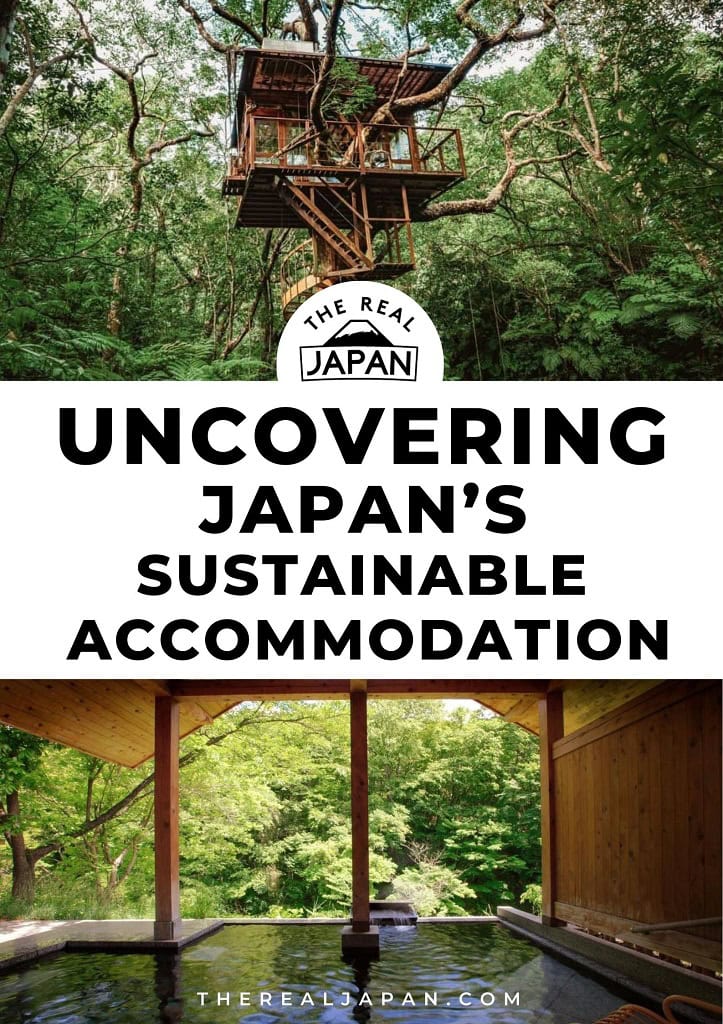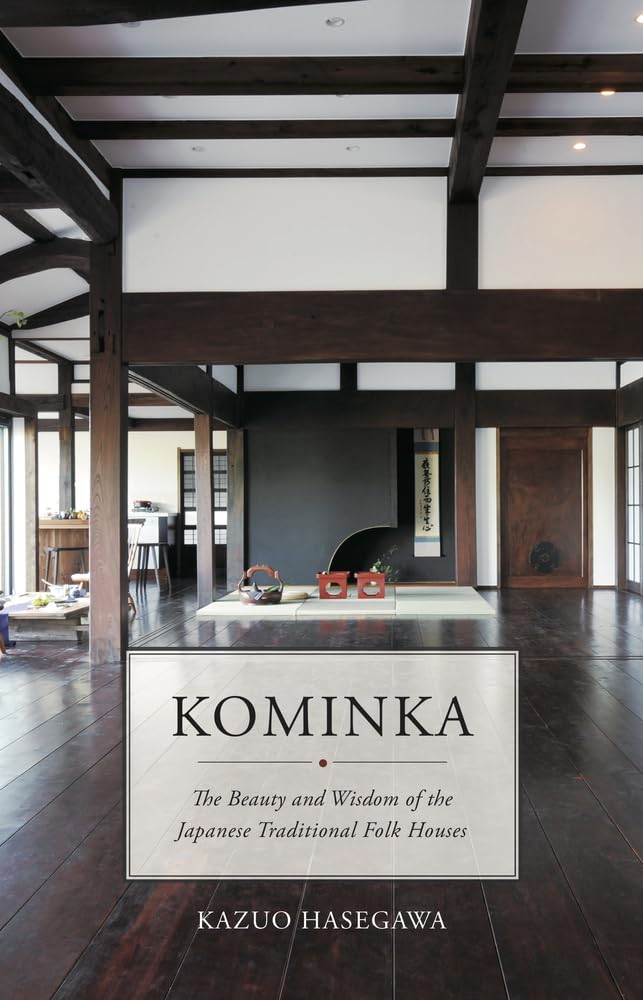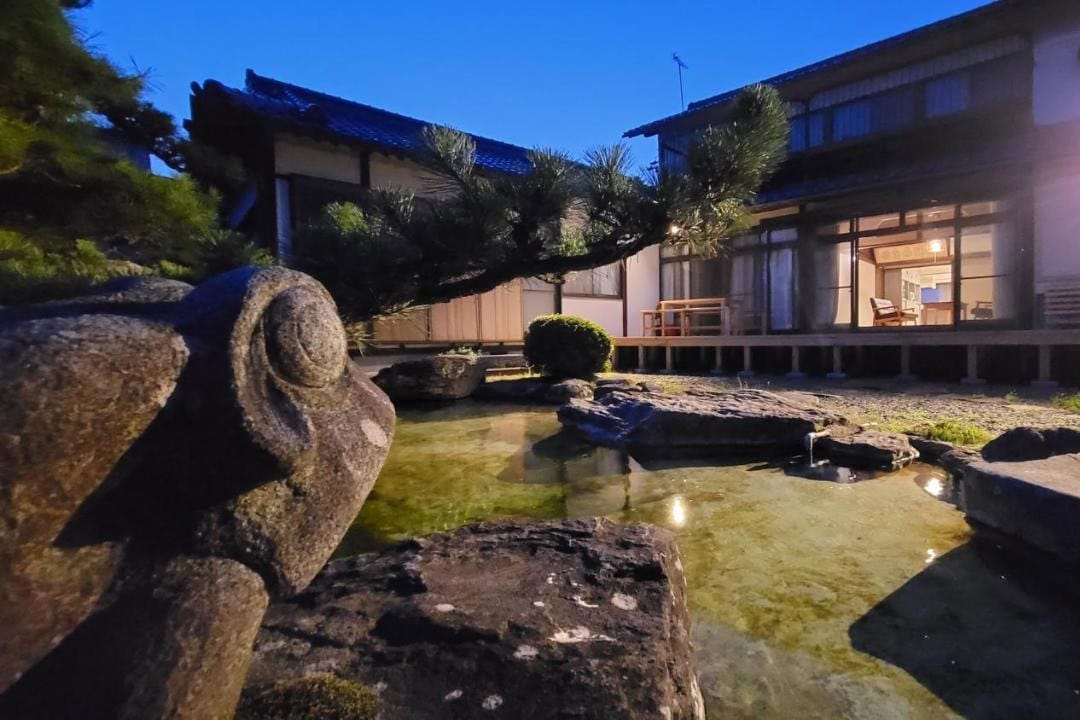Do you dream of escaping noisy bustling cities, spending more time in unspoilt nature and staying in sustainable accommodation in Japan? You're not alone.
In a recent survey by Booking.com, 55% of global travellers said they are looking to go ‘off-grid’ for their next trip.
Thankfully, Japan boasts a selection of spectacular low-impact, eco-friendly and sustainable accommodation that will comfortably fulfil your dreams.
From the misty mountains of Hokkaido in the north to the lush forests of Yakushima in the south, these secluded retreats offer a unique blend of traditional Japanese hospitality and sustainable accommodation.
Ready for your eco-friendly adventure? Good! Let's uncover Japan's spectacular sustainable stays...
Listen to the podcast ►
Best Sustainable Accommodation in Japan?
Get my free Japan Travel Bulletin:
Uncovering Japan’s Spectacular Sustainable Accommodation
by Rob Dyer
What is sustainable accommodation in Japan?
As a kid, I was always immersing myself in nature, I lost track of the amount of times I fell out of trees, but back then (in the 1970s) I hadn't yet heard of living sustainably or going off-grid.
Sustainable accommodation is eco-friendly lodging that minimises environmental impact through energy efficiency, waste reduction, and resource conservation while often promoting local culture and supporting community development. Off-grid living refers to a lifestyle that operates independently from public utilities and infrastructure, particularly the electrical grid. It typically involves self-sufficiency in terms of power generation, water supply, and waste management.
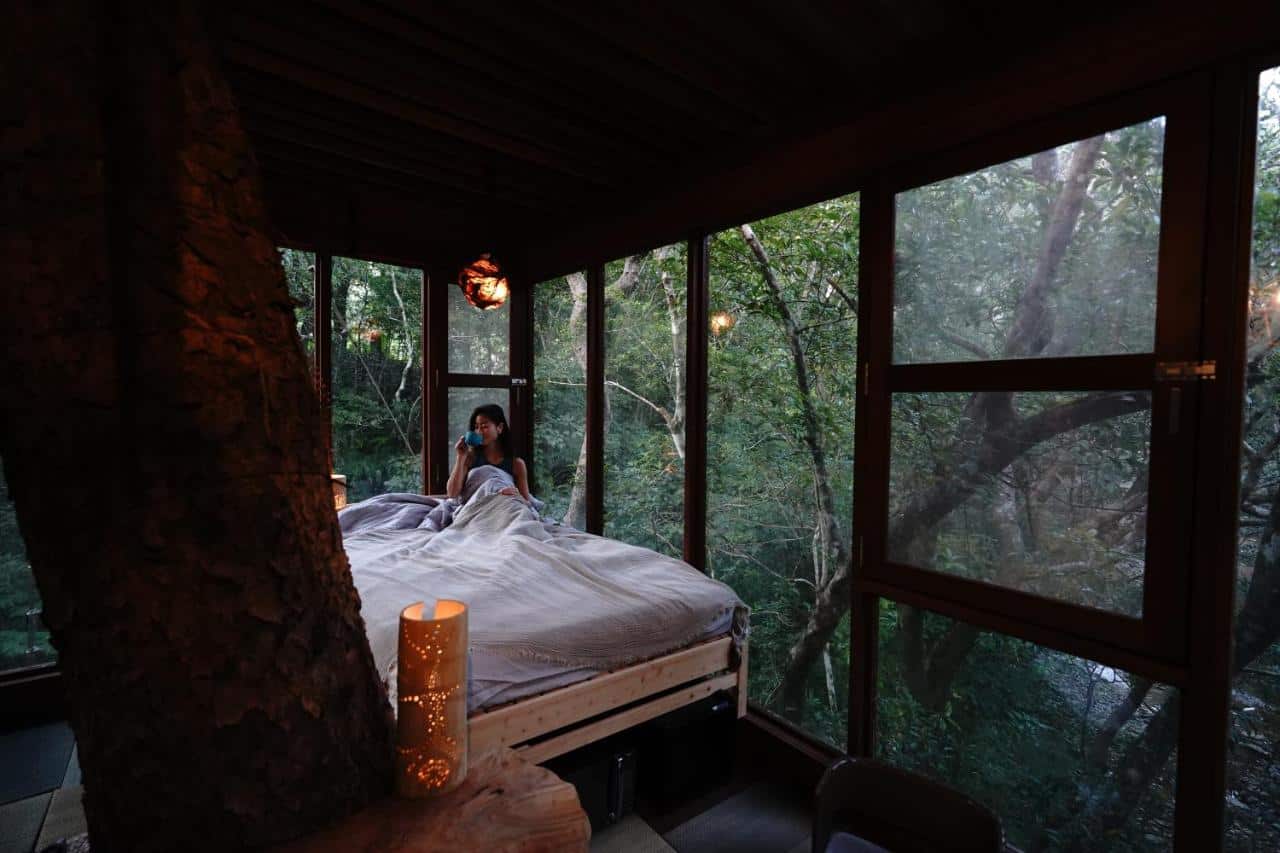
Treeful Treehouse Sustainable Resort in Okinawa - where rooms are built around a growing tree trunk
I guess the most popular mainstream TV show when I was growing up in the UK that touched on these themes was the sitcom The Good Life. Although it was played for laughs it did help raise awareness of sustainable issues for those living in suburbia, where growing your own veg and raising chickens was a first step in the right direction.
Other things that you find in sustainable accommodation are that it uses alternative energy sources like solar or wind power, implements water conservation methods, and often embraces sustainable travel practices to minimize its environmental impact while providing a unique experience for guests.
SEE ALSO: 5 Insider Tips for Sustainable Travel in Japan
Benefits of staying in sustainable accommodation
1. Immersive nature experience
- Unparalleled access to unspoilt natural environments
- Opportunity for true disconnection from urban life
- Enhanced wildlife viewing and stargazing opportunities
2. Reduced environmental impact
- Lower carbon footprint compared to traditional hotels
- Support for sustainable tourism practices
- Education on eco-friendly living techniques
3. Unique cultural experiences
- Closer interaction with local communities and traditions
- Authentic insight into rural Japanese lifestyles
- Participation in traditional activities and crafts
4. Digital detox
- Escaping from constant connectivity and screen time
- Improved mental well-being and stress reduction
- Opportunity for mindfulness and self-reflection
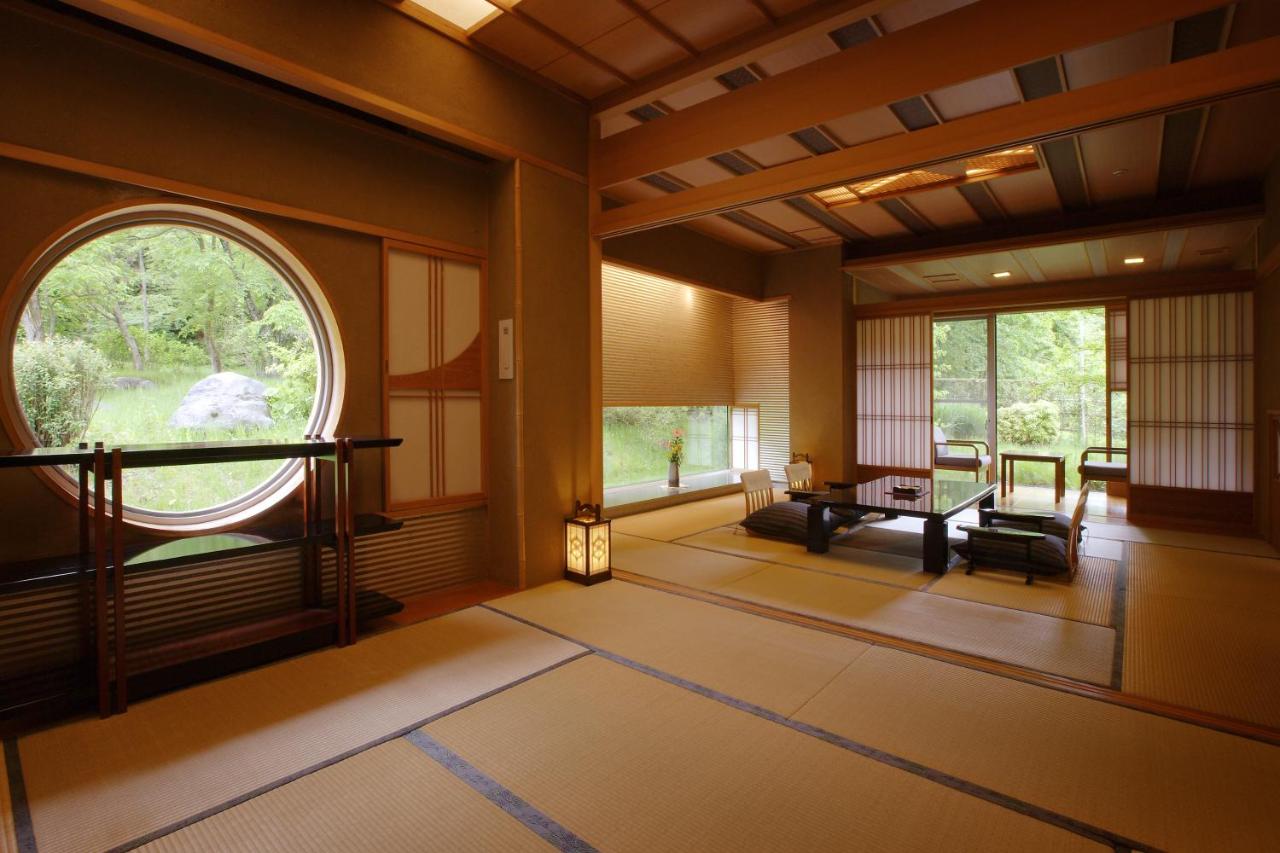
Bettei Senjuan in Minakami, Gunma Prefecture - a luxurious haven for stress reduction and mindfulness
5. Adventure and self-reliance
- Develop new skills in sustainable living
- Exciting challenges of adapting to a different lifestyle
- Sense of accomplishment from "roughing it"
6. Health benefits
- Clean air and reduced pollution exposure
- Natural light cycles for improved sleep patterns
- Increased physical activity through outdoor pursuits
7. Eco-education
- Learn about renewable energy systems firsthand
- Gain knowledge about water conservation techniques
- Understand the principles of sustainable architecture
8. Privacy and exclusivity
- Secluded locations away from tourist crowds
- Intimate settings for romantic getaways or family bonding
- Personalised attention from hosts in smaller accommodation
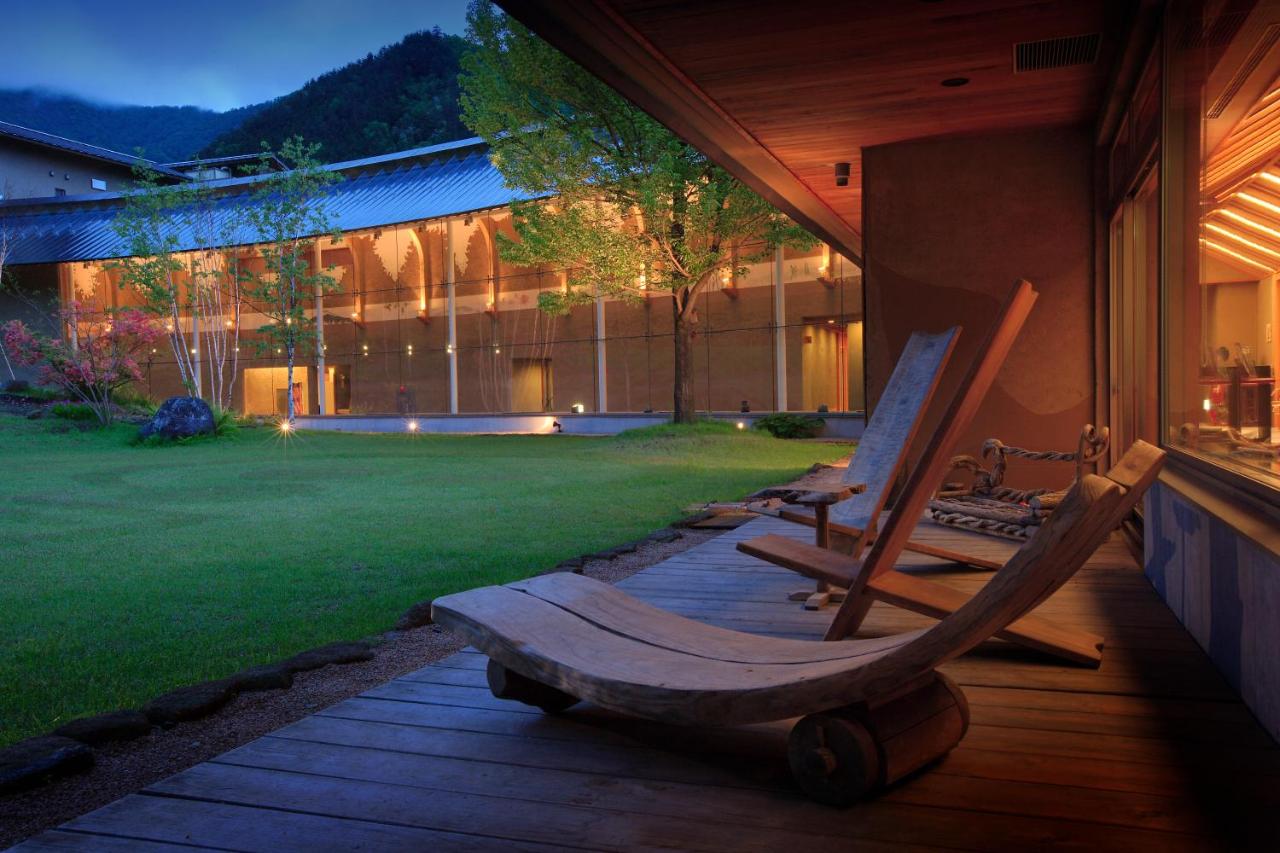
Bettei Senjuan in Minakami, Gunma was awarded the Luxury Hideaway Resort prize in the 2016 World Luxury Hotel Awards
9. Supporting local economies
- Direct contribution to rural communities
- Preservation of traditional buildings and crafts
- Encouragement of sustainable development in remote areas
10. Inspiration for sustainable living
- Ideas for implementing eco-friendly practices at home
- Motivation to adopt a more environmentally-conscious lifestyle
- Newfound appreciation for resource conservation
How sustainable accommodation differs from traditional hotels
Given the choice between a 'conventional' hotel and one that is either sustainable, or has a pro-active low impact footprint, the latter will always get my money. Some sustainable accommodation offers a stark contrast to traditional hotels, but provides a unique and immersive experience that goes beyond mere lodging.
Unlike conventional hotels that rely on urban infrastructure, environmentally-friendly stays operate independently, often using renewable energy sources, some using sustainable water management systems.
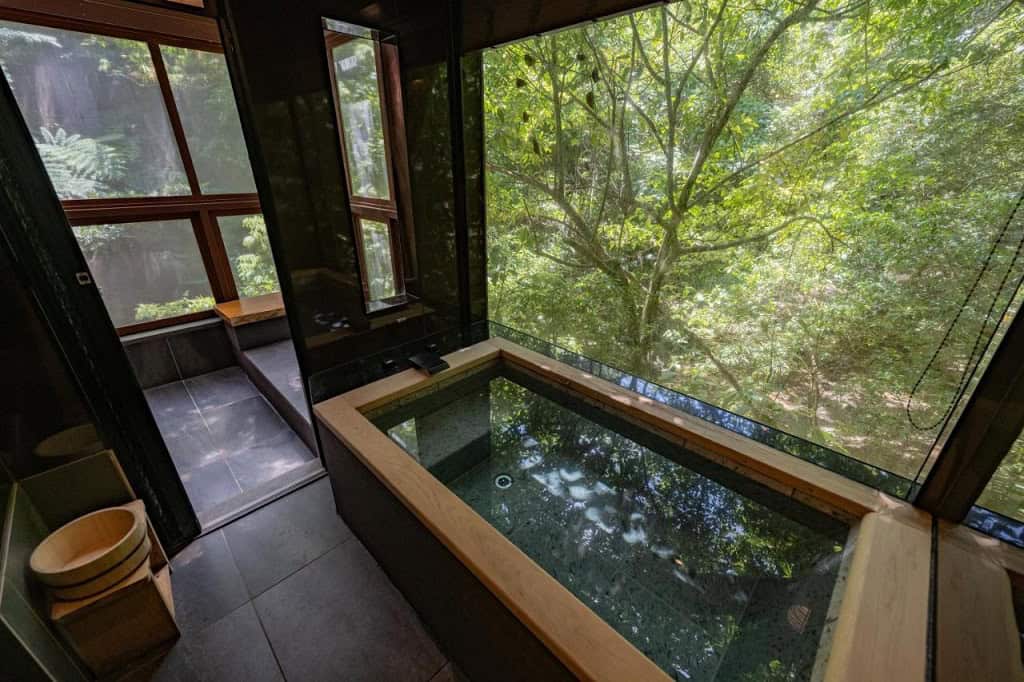
Treeful Treehouse Sustainable Resort in Okinawa - where you can sleep under the stars amongst the branches of trees
While traditional hotels offer standardised amenities and services, sustainable accommodations emphasise connection with nature, local culture (and their communities and economies), and living in harmony with the natural world. You may trade room service and WiFi for starry skies and birdsong, and instead of city views, you wake up to natural landscapes.
In Japan, this might mean staying in a renovated farmhouse with solar panels, or a treehouse using collected rainwater - experiences that not only provide shelter but also insight into traditional Japanese rural life and cutting-edge eco-technology.
VIDEO: Walking Around Ainokura Village, Gokayama
These environmentally-friendly retreats often feature rustic yet comfortable designs blending into their surroundings, offering a genuine, hands-on experience of sustainable living that you simply can't find in a typical hotel.
And there's no need to think of this as an exercise in self-denial. One benefit of living when we are in history, is that eco-friendly business practises combined with modern technology means you can choose a very comfortable experience and yet not sacrifice the planet as you chill out.
Types of sustainable accommodation in Japan
Traditional Japanese farmhouses
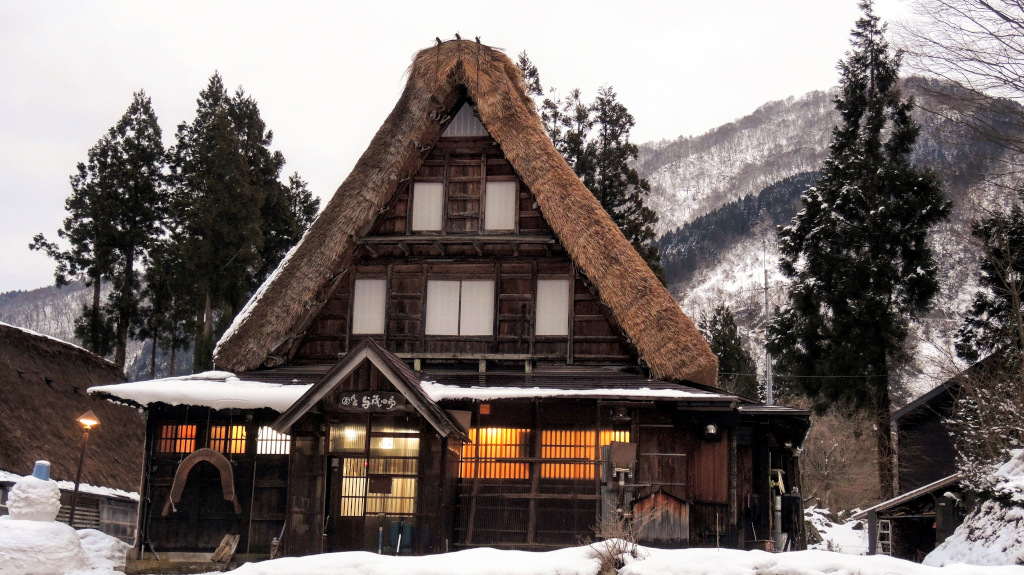
Yomoshirou, a wonderful old farmhouse in Ainokura - a tiny hamlet in the mountains of Gokayama
Step back in time with a stay in a traditional Japanese farmhouse. These sometimes centuries-old farmhouses offer an authentic glimpse into rural Japanese life.
One my wife and I stayed at is Yomoshirou, a wonderful farmhouse in Ainokura - a tiny hamlet in the mountains of Gokayama, Toyama Prefecture. Ainokura is not far from the better-known Shirakawa-go. I shot the video above while we were walking around the village at dusk in wintertime.
With their thatched roofs, wooden beams, and tatami floors, it's not surprising that some farmhouses have been lovingly converted into cosy retreats. Some feature modern eco-friendly upgrades like solar panels and composting toilets, blending the best of tradition with sustainability comforts. Just imagine yourself sipping green tea by an irori (sunken hearth), surrounded by the tranquil beauty of rice paddies and mountains.
Eco-friendly treehouses - a childhood dream come true
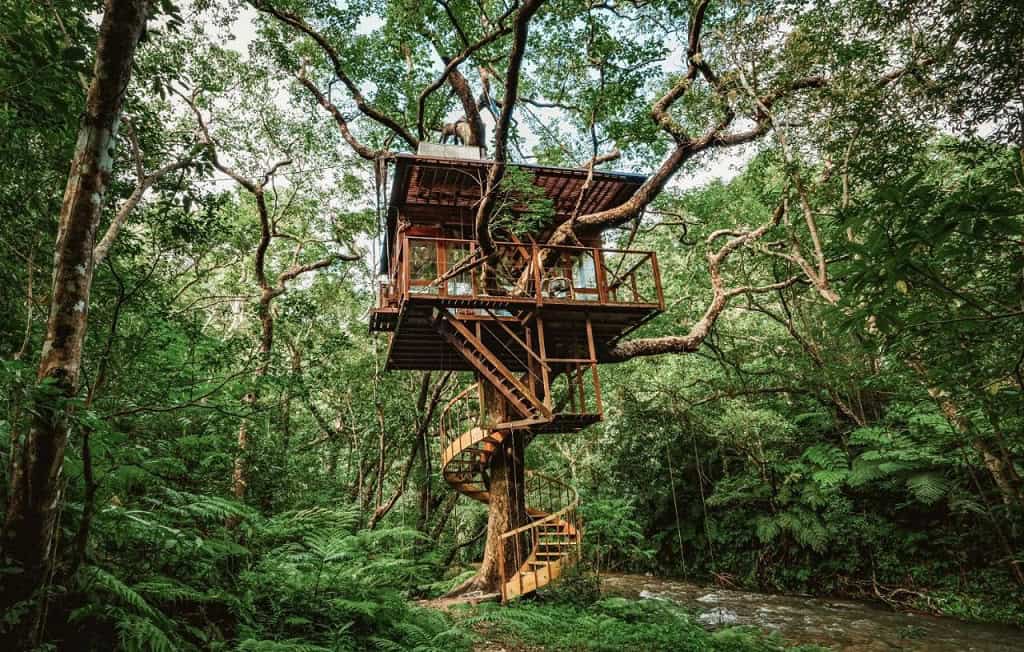
Treeful Treehouse Sustainable Resort in Okinawa - the spectacular Spiral treehouse more than lives up to its name
For a truly unique experience, why not ascend into the canopy of Japan's lush forests by staying in a treehouse? As a child, the trees in our garden were not big enough to hold a proper treehouse, so some friends and I built one in the nearby woods. That one was as basic as they get. But this common childhood dream has now become a very adult reality in the form of luxury eco-friendly treehouses combining child-like wonder with cutting-edge green technology.
These elevated havens often use reclaimed materials and run on solar power. Large windows and open-air decks keep you connected to the surrounding nature, while compostable toilets and even rainwater showers minimise any environmental impact. One spectacular example is the Treeful Treehouse Sustainable Resort in Okinawa - see below for more details.
Remote mountain cabins - private seclusion surrounded by nature
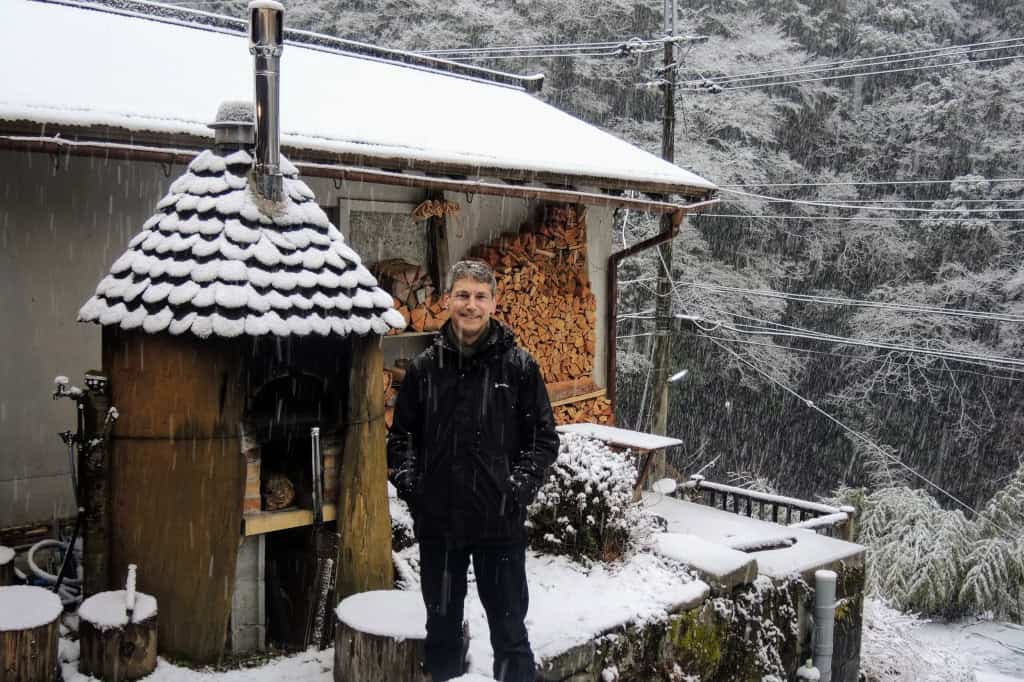
Hanare off-grid cabin in Wakayama - where my wife and I stayed in the winter of 2018
When it comes to remote mountain cabins there are two kinds: those that form part of Japan's mountain hiking trail network providing lifesaving refuges from the elements. And those run privately intended purely as remote leisure getaways. Here, we're focusing on the latter.
Nestled among Japan's rugged mountain ranges, these secluded private cabins offer the ultimate escape. Because they lay well off the beaten path, they provide unparalleled privacy and immerse you in nature. Many are equipped with wood-burning stoves, solar panels, and natural spring water systems.
These rustic retreats might also feature an outdoor hot tub heated by burning firewood, or stargazing decks. Perfect for adventurers, they serve as base camps for hiking, wildlife watching, or simply soaking in the majestic alpine scenery. The photo above was taken by my wife during a magical stay in just such a remote mountain cabin in Wakayama Prefecture (full write-up to follow).
Minshuku - Japanese bed & breakfast house sharing
All over Japan you'll find minshuku - family-run Japanese-style homes offering bed and breakfast. Unlike ryokan (traditional Japanese inns) these are, first and foremost, people's homes. The owners have simply chosen to share them with visitors, much like the B&Bs - bed and breakfasts popular in Europe.
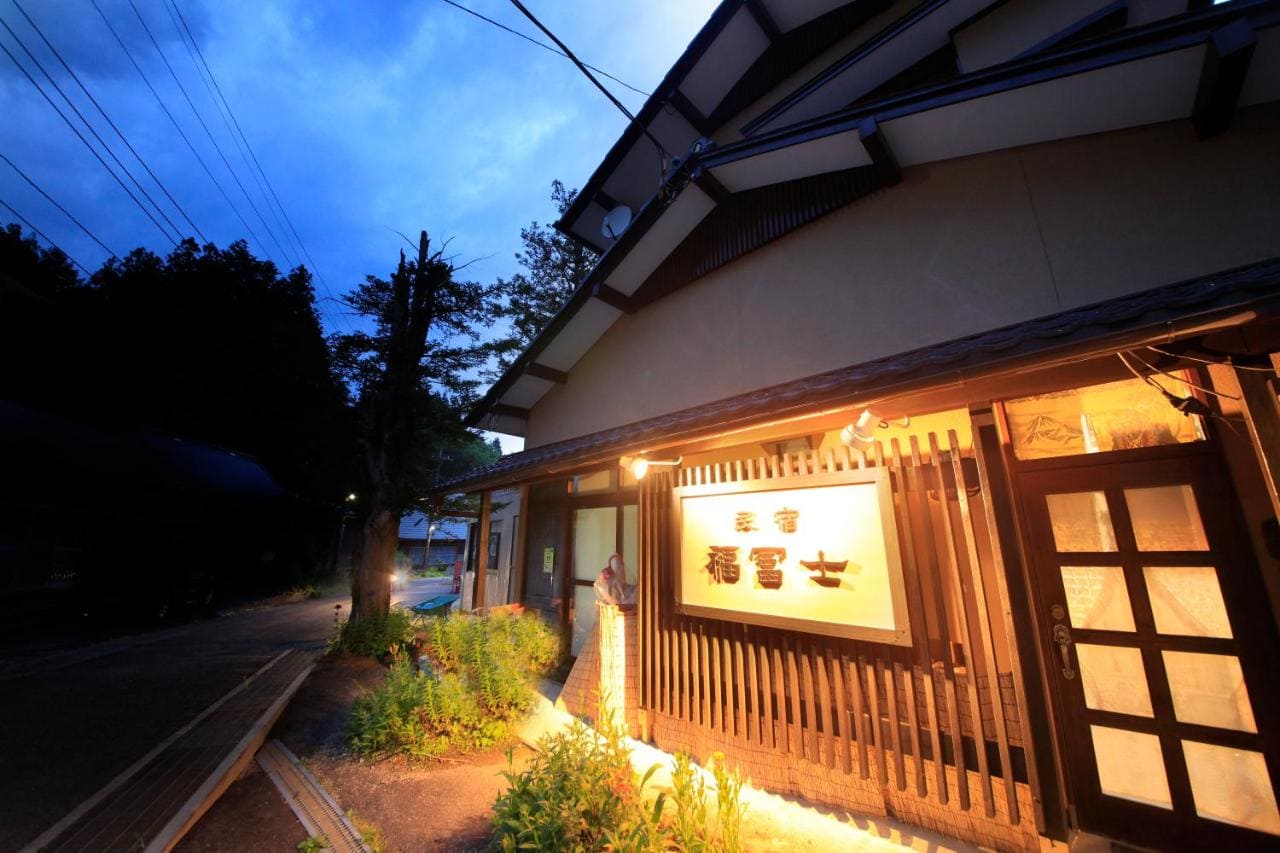
Minshuku Fukufuji in Nikko, Tochigi Prefecture - is located in the Nikko National Park
Although not always originally built with sustainability in mind, you cannot argue that sharing someone's existing home has got to be better for the planet than staying in new accommodation specifically built for that purpose. Also, many minshuku are older buildings, often made primarily or entirely out of wood, rather than concrete or steel. So their eco-footprint is usually easier on the land than most newly built properties.
Like their B&B counterparts, staying at a minshuku is like temporarily adopting a family (if family-run) or a new mother. They all offer bed and breakfast, some will also offer evening meals as well.
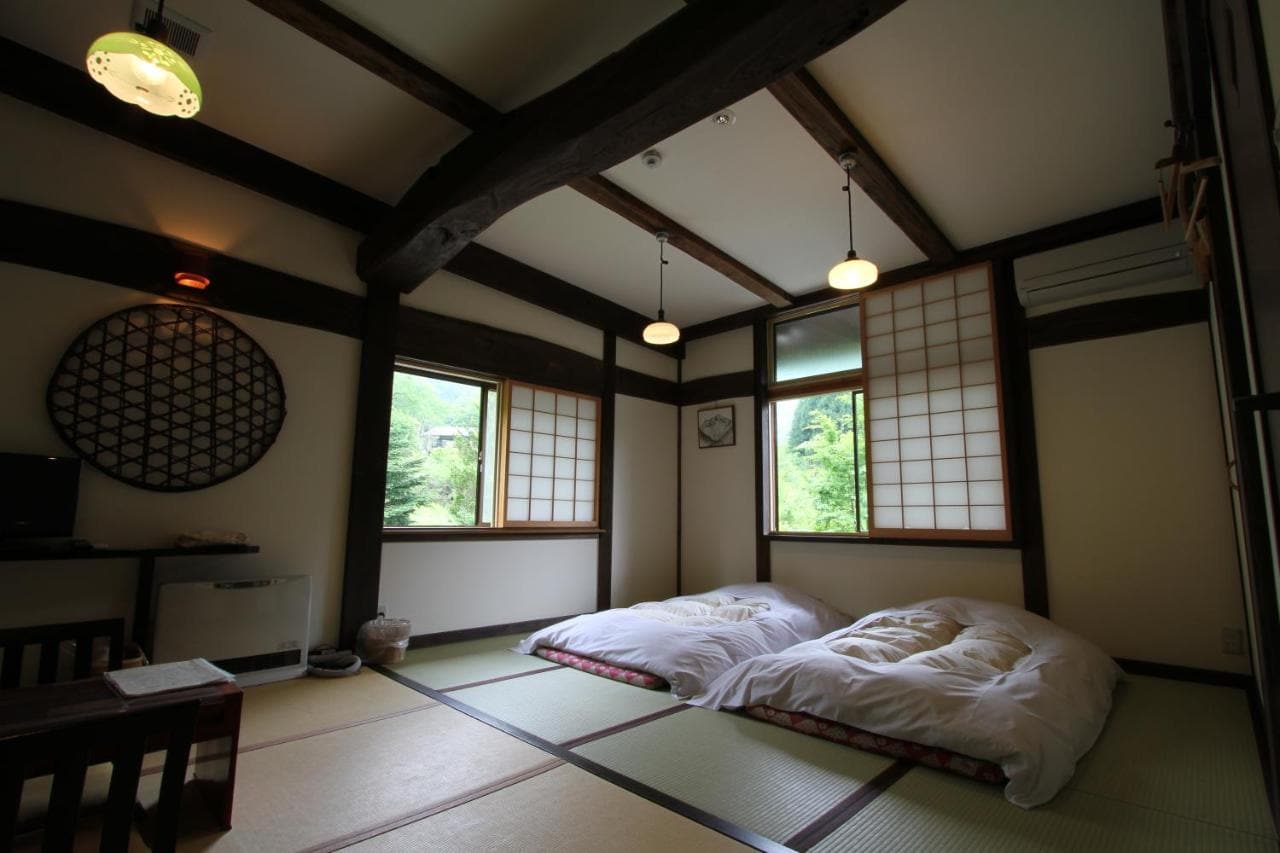
Minshuku Takizawa in Takayama - where heat from a natural hot-spring is used for under floor heating
Facilities and amenities will be more modest compared with commercial hotels, as will the decor. Since these are real homes the number of rooms is generally very few. Many minshuku only have one spare room, meaning you'll be the only guests staying there. Others may have two, or three rooms, in which case amenities, such as bathrooms and toilets, will usually be shared.
An advantage minshuku offer is the local knowledge, expertise and links to the community provided by your hosts. They're often a mine of local information, keen to share their travel and attraction insights with you.
Renovated Kominka - old Japanese houses getting a new life

Akizuki Kayabuki Kominka in Fukuoka - has been carefully restored into comfortable accommodation
Kominka are traditional homes, often over a century old, that have been carefully restored and updated with modern eco-friendly amenities while preserving their original charm. You may have noticed a steady increase in the number of foreigners buying up old Japanese houses in rural parts of Japan and slowly transforming them into their dream homes.
If this is something you might be considering, staying in a kominka is a great way to get a feel for the practical considerations of such a move.
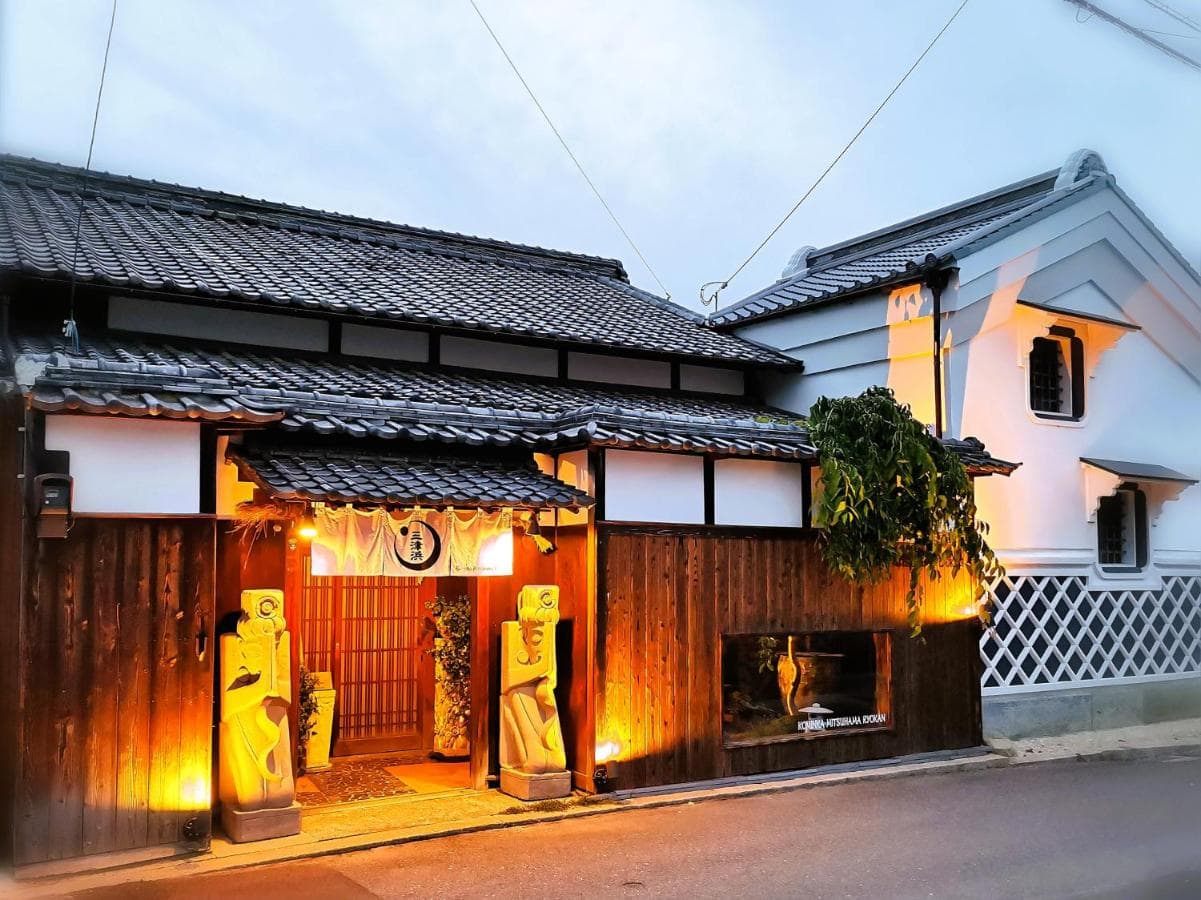
Kominka Mitsuhama in Matsuyama - an example of a traditional home turned into commercial accommodation
In kominka, thick earthen walls provide natural insulation, while restored features like shoji screens and engawa (verandas) connect you to the surrounding nature. Some now also boast energy-efficient appliances, greywater systems, and organic gardens. It's a chance to live like a local in a slice of Japanese architectural heritage.
If you're considering embarking on a kominka renovation, or would simply like to know more about these traditional dwellings, check out Kazuo Hasegawa's book Kominka: The Beauty and Wisdom of Japanese Traditional House to learn more about the author's own renovation journey.
Selected sustainable accommodation in Japan
The world's oldest ryokan in Yamanashi
Nestled in a picturesque valley in Yamanashi Prefecture, Nishiyama Onsen Keiunkan holds the Guinness World Record for the world's oldest hot spring inn, dating back to 705 CE. This 5-star ryokan seamlessly blends ancient tradition with modern luxury. Natural hot spring water flows throughout the property, including in-room showers. Guests can indulge in gourmet meals featuring local delicacies like A5 rank Koshu beef, prepared by award-winning chefs.
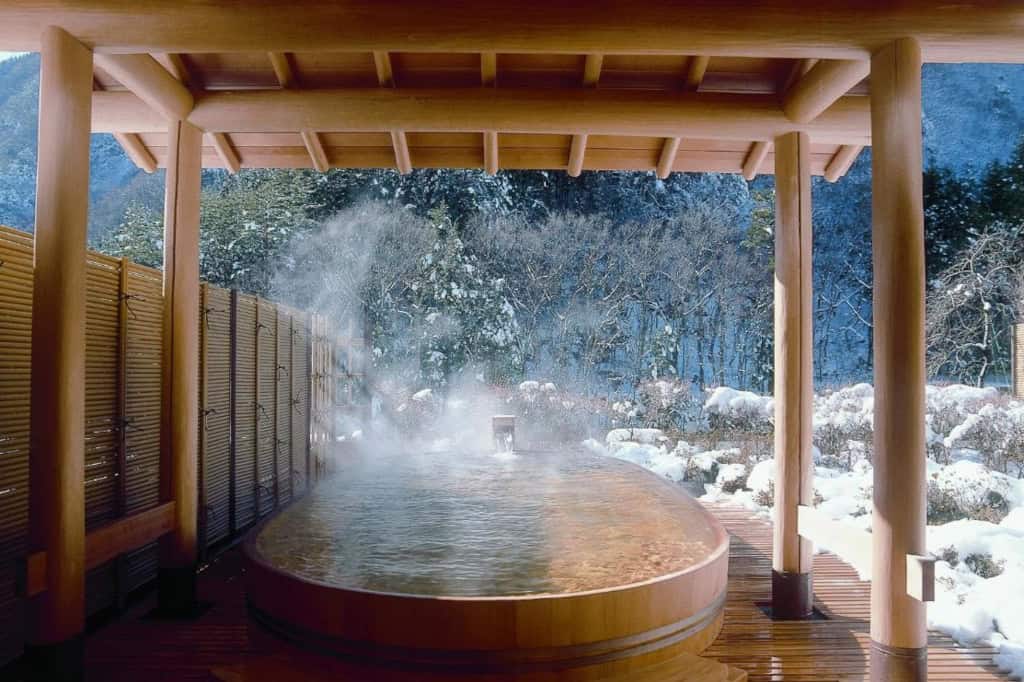
Nishiyama Onsen Keiunkan in Yamanashi is the world's oldest ryokan
Amenities include free WiFi, open-air baths, and a sauna. The ryokan offers a shuttle service from Minobu Station (accessible by train with a couple of changes from Tokyo Station), which is an hour's drive away. With its rich history and stunning natural setting, Nishiyama Onsen Keiunkan provides a unique glimpse into Japan's onsen culture while ensuring a comfortable, luxurious stay.
Hokkaido's wilderness retreats
Japan's northernmost island, Hokkaido, is a haven for nature lovers seeking true wilderness experiences. Its vast forests, volcanic landscapes, and abundant wildlife make it perfect for your sustainable adventures. Hotel Kifu Club Shiretoko offers a serene retreat near Hokkaido's stunning Shiretoko National Park. This ryokan-style accommodation features sea views, hot spring baths, and comfortable rooms with modern amenities.
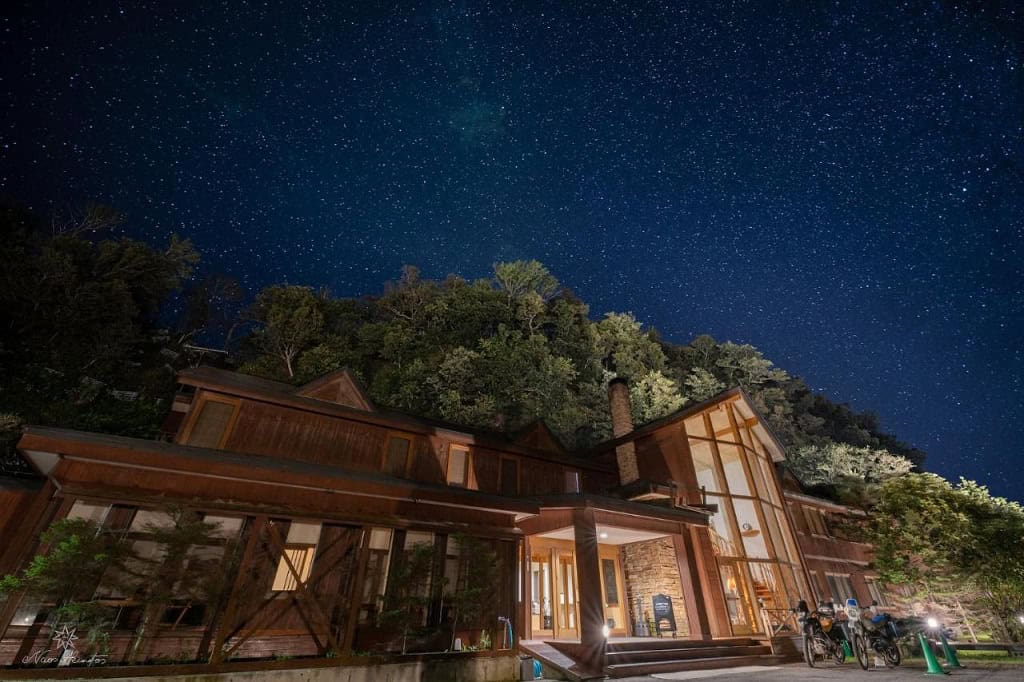
Kifu Club Shiretoko in Hokkaido located in a geothermal area provide a charging station for electric vehicles
Situated in a geothermal area, it's an ideal base for exploring the region's natural wonders and enjoying outdoor activities like hiking. The hotel provides free WiFi, parking, and an electric vehicle charging station. With its blend of traditional Japanese hospitality and eco-friendly features, Hotel Kifu Club Shiretoko caters well to both nature enthusiasts and those seeking relaxation in Hokkaido's beautiful landscapes.
Gunma's luxurious mountain escape
Gunma Prefecture lies at the very heart of Japan's main island Honshu. Having no coastline, it's one of only 8 of Japan's 47 prefectures that are landlocked. The region is literally surrounded by mountains and volcanoes, offering the perfect location for those wanting to stay in amidst Japan's natural beauty.
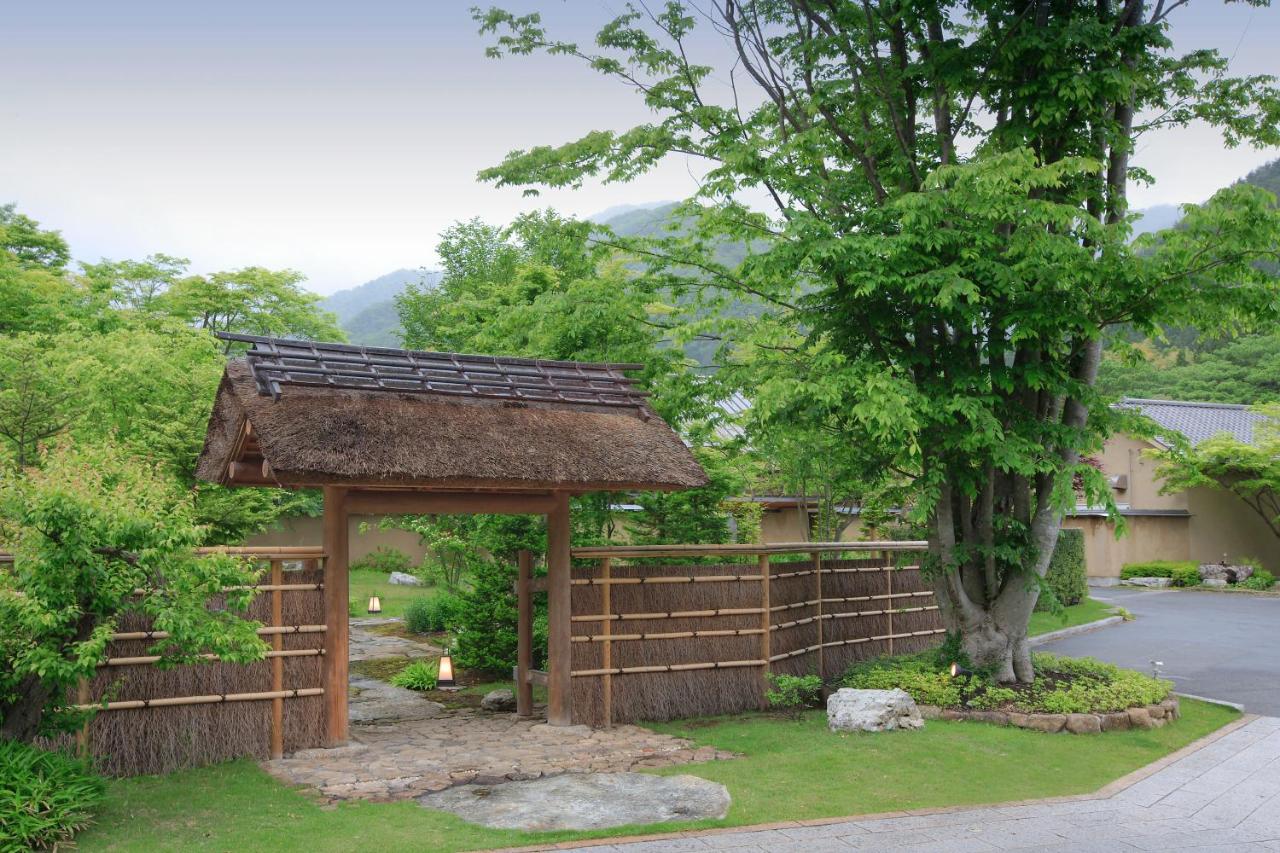
Bettei Senjuan in Minakami, Gunma Prefecture - the design and architecture sits comfortably within the natural surroundings
The region's rugged terrain and pristine forests provide an ideal setting for sustainable living.
Take, for example, the luxurious Bettei Senjuan in Minakami. While not strictly off-grid, this high-end ryokan retreat harmonizes with nature, blending traditional Japanese aesthetics with modern eco-conscious design. Perched on a hillside overlooking the Tanigawa mountain range, each room features a private open-air onsen bath fed by natural hot springs and views out to Mount Tanigawa.
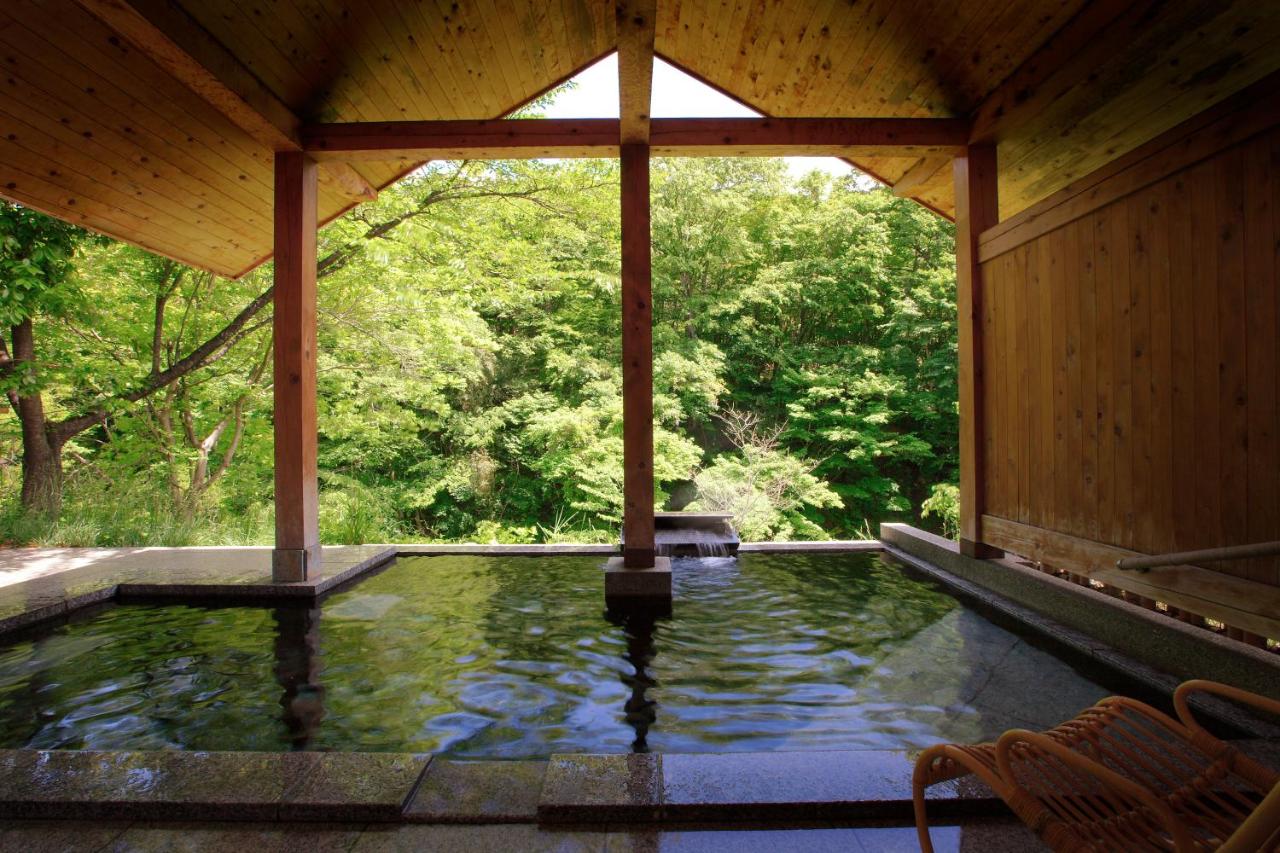
Bettei Senjuan in Gunma Prefecture uses geothermal energy for heating and cooling
The ryokan maintains a strong commitment to sustainability, using geothermal energy for heating and cooling, and sourcing many of its materials locally. It's a fine example of how luxury and environmental consciousness can coexist in modern Japanese hospitality.
Yakushima's ancient forest hideaways
If your plans include Japan's southern island of Kyushu, then the mystical island of Yakushima, with its ancient cedar forests and misty mountains, seems tailor-made for sustainable accommodation. Yakushima is located approximately 61 km/38 mi south of the southern tip of Ōsumi Peninsula in southern Kyushu, or 135 km/73 mi south of Kagoshima.
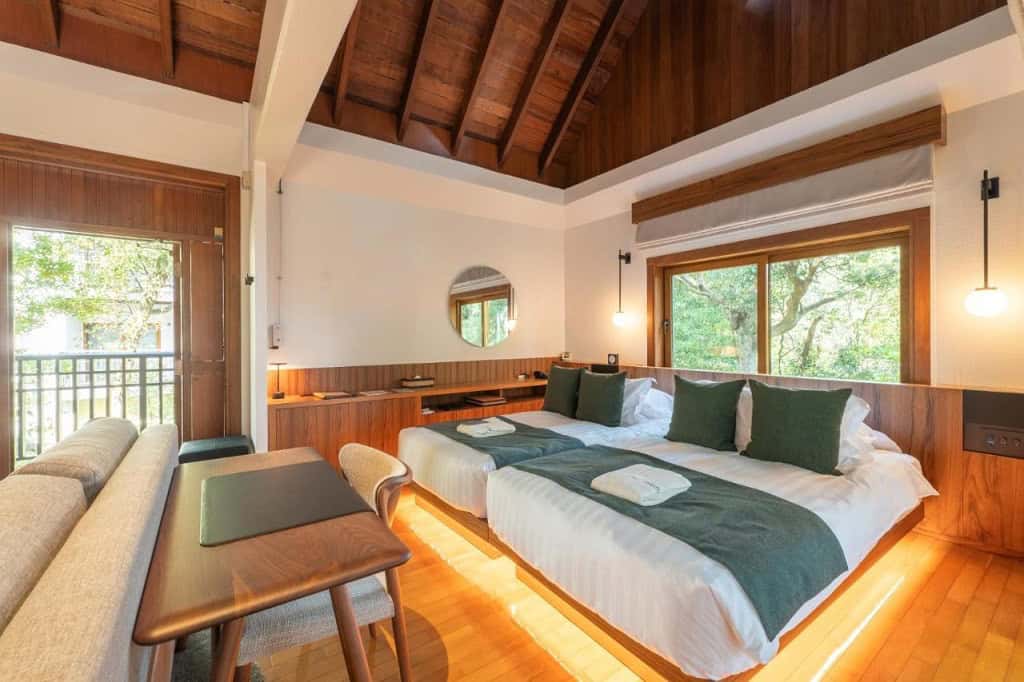
Sankara Hotel & Spa in Yakushima offers a luxurious eco-retreat seamlessly blending with ancient forest surroundings
Nestled in the lush forests of Yakushima, a UNESCO World Heritage site, Sankara Hotel & Spa offers a luxurious eco-retreat that sits within its ancient forest surroundings. This boutique resort embraces sustainable practices that honour the island's unique ecosystem. The property features spacious villas with panoramic ocean views, each designed to maximize natural light and ventilation.
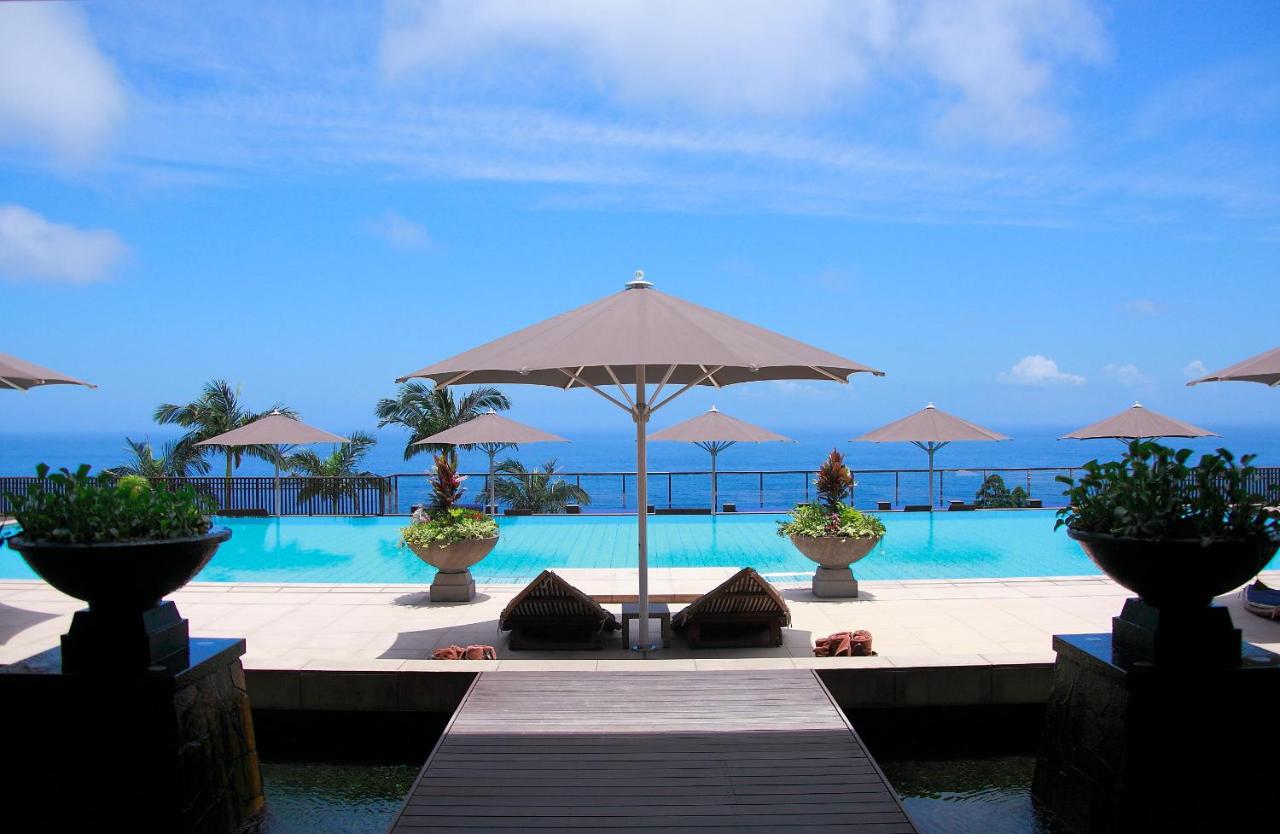
Sankara Hotel & Spa in Yakushima -a boutique resort embracing sustainable practices that honour the island's unique ecosystem
Sankara's commitment to sustainability is evident in its use of locally sourced materials, energy-efficient systems, and a farm-to-table approach in its acclaimed restaurant. Guests can immerse themselves in Yakushima's natural wonders through guided eco-tours of the ancient cedar forests, or unwind in the spa which utilizes local herbs and spring water.
The resort strikes a delicate balance between luxury and environmental responsibility, offering a serene base for exploring one of Japan's most captivating islands.
Okinawa Island's dream sustainable treehouse resort

Treeful Treehouse Sustainable Resort in Okinawa features this dramatic Spiral Treehouse accommodation
The subtropical paradise of Okinawa offers a different flavor of sustainable accommodation, with a focus on marine ecosystems and island culture. Perched in the lush jungle canopy of northern Okinawa, the magical Treeful Treehouse Sustainable Resort offers a unique eco-luxury experience that seamlessly blends with its natural surroundings. This innovative resort features several elevated treehouse accommodations, including the striking "Spiral Treehouse" and cosy "Bird's Nest."
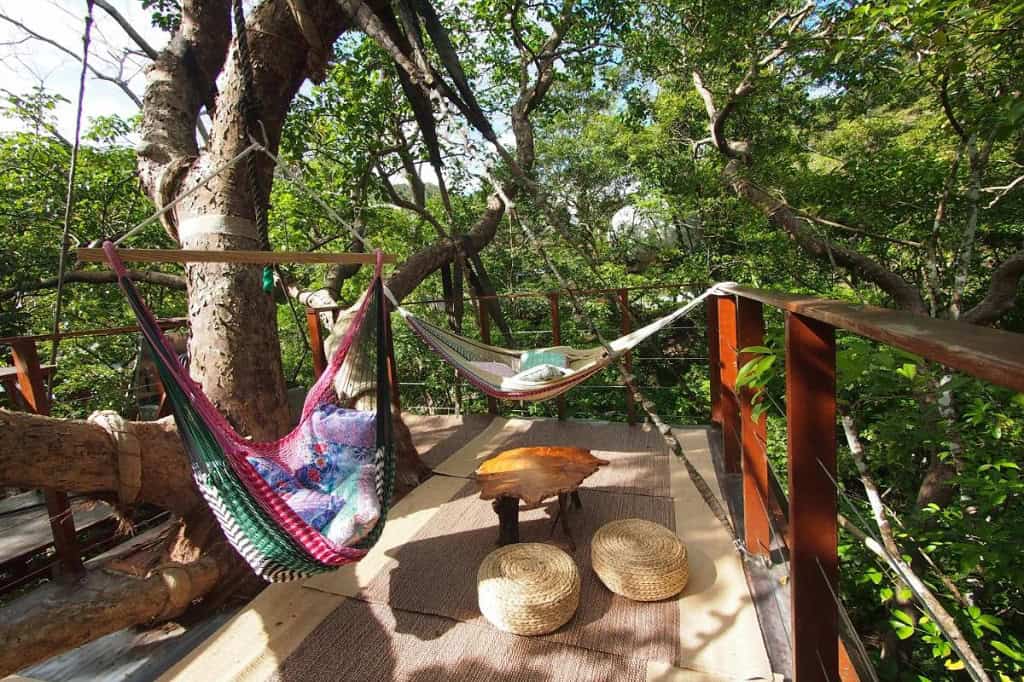
Treeful Treehouse Sustainable Resort in Okinawa - where you can sleep in the island's suptropical tree canopy
Committed to sustainability, the resort runs on renewable energy, utilizing solar power and a micro-hydroelectric system from the adjacent river. Rainwater harvesting and greywater recycling systems minimize water waste, while composting toilets reduce environmental impact. The resort's design prioritizes natural ventilation and lighting, reducing energy needs.
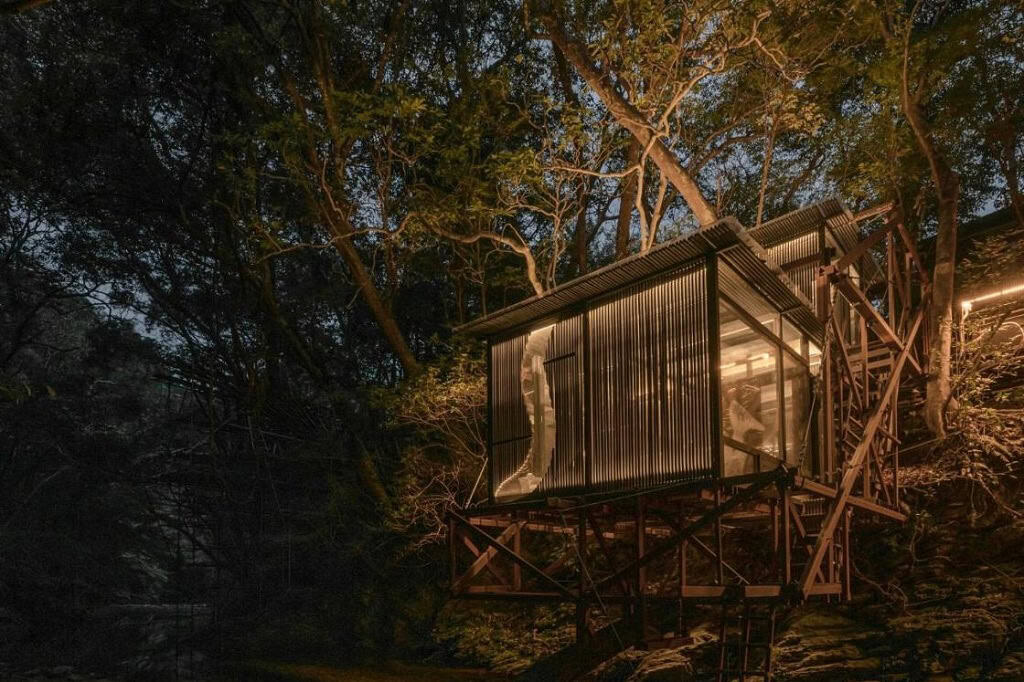
Treeful Treehouse Sustainable Resort in Okinawa focuses on low-impact luxury and environmental education
Guests can explore the rich Okinawan ecosystem through guided nature walks, participate in coral restoration projects, or simply relax in their treetop abode, lulled by the sounds of the forest.
With its focus on low-impact luxury and environmental education, Treeful Treehouse provides a one-of-a-kind opportunity to reconnect with nature while supporting sustainable tourism practices in Japan's tropical paradise.
VIDEO: Kamikastu - Japan's Zero Waste Town
Shikoku's 'Zero Waste' town and hotel WHY
Kamikatsu, a small town nestled in the mountains of Shikoku, the smallest of Japan's main islands, is one of the least populated municipalities in Shikoku, but has gained international recognition for its ambitious zero waste programme. In 2003, Kamikatsu became the first municipality in Japan to issue a zero-waste declaration.
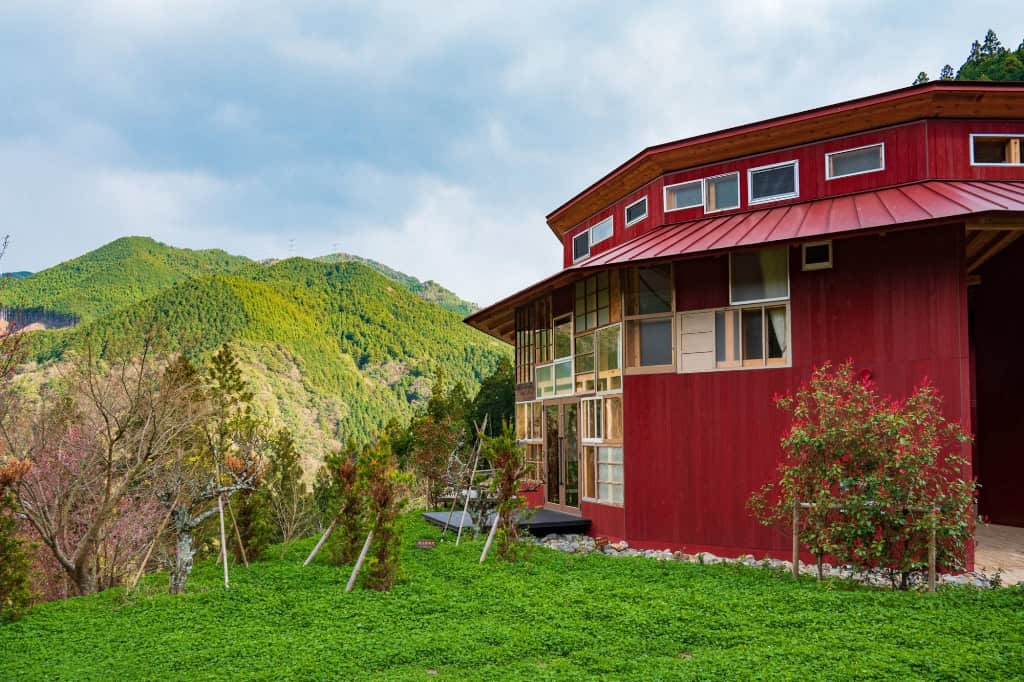
The circular Hotel WHY, part of the Kamikatsu Zero Waste Centre on Shikoku Island
Households must separate their garbage into as many as 45 different categories before taking them to the Kamikatsu Zero Waste Centre (quirkily built in the shape of a question mark). Inside this multi-functional complex, there is a small eco-friendly hotel called Hotel WHY, where guests can experience a local lifestyle embodying the concept of sustainable living.
In order to reduce the amount of plastic waste, the hotel provides no disposable amenities, and guests are asked to cut just the soap they need from a soap bar at check-in. During a stay, you're required to sort your trash into six baskets in your room; you take this to a communal facility for recycling when checking out.
Sustainable features of Japanese off-grid accommodation
Solar power systems - charging your devices guilt free!
A lot of sustainable accommodation in Japan utilises solar power, allowing you to enjoy modern comforts without relying on being plugged into the grid. Charge your devices guilt-free, enjoy warm showers, and illuminate your evenings - all with clean energy.
As an independent traveller, you'll probably appreciate the ability to stay connected even in remote locations (when you want to that is). Plus, some hosts offer tours of their solar tech setups, giving you insights into sustainable energy practices you might apply back home.
Rainwater harvesting - nature's solution for all your water needs
Rainwater harvesting systems collect and purify Japan's plentiful rainfall, providing fresh water for drinking, cooking, and bathing. As you shower or brew your morning tea, you'll be participating in sustainable water conservation.
This feature is particularly beneficial for those visiting remote islands or mountain regions where freshwater can be scarce. It's a practical lesson in resource management and a chance to reduce your water footprint while exploring Japan's landscapes.
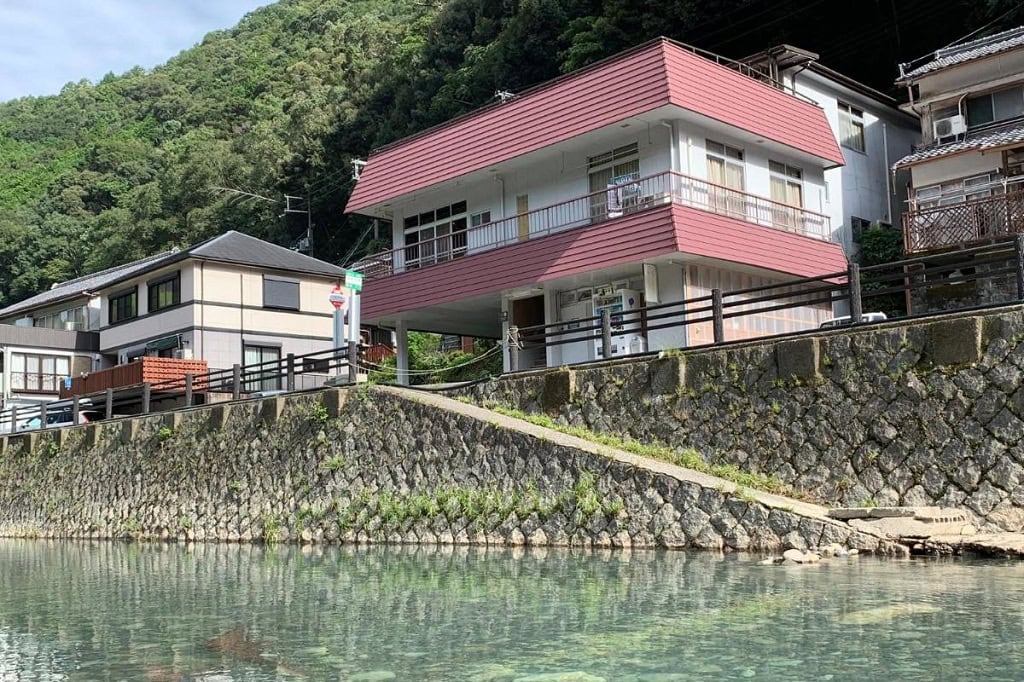
Minshuku Sumiya in Tanabe is an example of minshuku - Japanese bed and breakfast accommodation
Composting toilets - a natural solution
Don't let the idea of composting toilets put you off - modern, odor-free systems offer a fascinating glimpse into closed-loop sustainability. They're especially valuable in remote areas of Japan where conventional plumbing isn't feasible. As an eco-conscious traveller, you'll appreciate how these toilets turn waste into valuable compost for gardens, completing a natural cycle.
It's a chance to experience an essential aspect of off-grid living and perhaps challenge your preconceptions about waste management.
Natural building materials offer a sensory experience
Few countries can match Japan's ability to create modern, comfortable buildings using one of nature's oldest natural construction materials - wood. Sustainable buildings often utilise local, natural materials like cedar, bamboo, or even straw bales. These structures offer a distinctly sensory experience - the scent of wood, the cool touch of earthen walls, the sound dampening effect of a thatched roof.
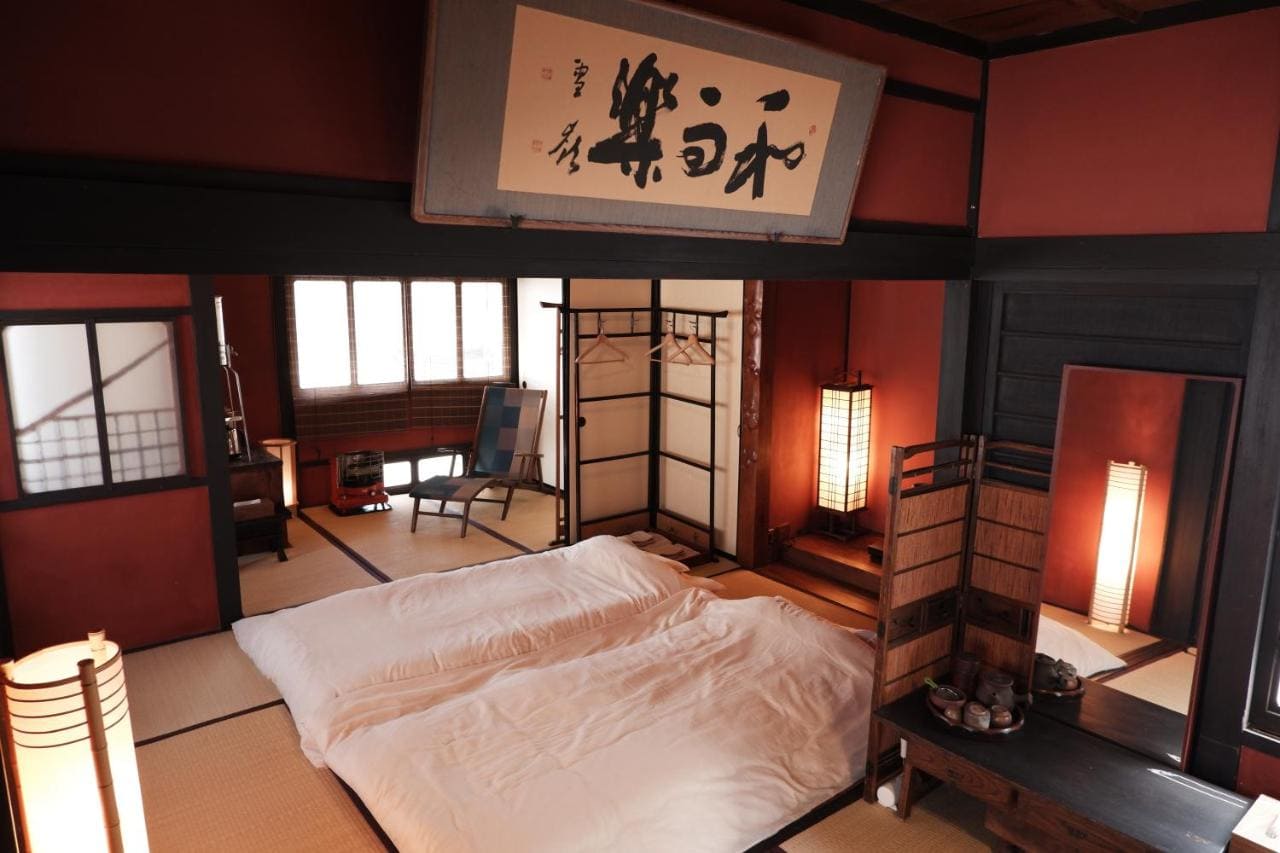
Sakaiya Kabukiya in Hiroshima - where you can stay with a family in their own home
It's a chance to live within Japanese architectural traditions while enjoying the benefits of natural temperature regulation and chemical-free surroundings. You'll gain a deeper appreciation for sustainable architecture and how it connects to local ecosystems, staying in accommodation that breathes with the landscape - not against it.
Organic gardens and farm-to-table dining
Some off-grid accommodations maintain organic gardens, meaning you'll get the opportunity to harvest your own vegetables or participate in traditional farming activities. Foodies passionate about nature will love the chance to create authentic Japanese meals using ingredients grown just a few steps from your door.
This farm-to-table experience not only reduces food miles but also connects you deeply with the local environmental factors and seasonal rhythms of Japan. It's a delicious way to understand Japanese cuisine, agricultural practices, and the importance of food self-sufficiency in off-grid living.
VIDEO: Off Grid Sustainable lifestyle in Japan
Preparing for your sustainable stay in Japan
Depending on how far off the beaten path you intend to go, your sustainable adventure in Japan may require a little extra preparation to ensure a smooth and comfortable experience.
From packing the right gear to understanding local customs, a little forethought goes a long way in making your eco-friendly stay trouble-free and uniquely memorable. Here's some key points to consider as you plan your sustainable journey and accommodation:
Practical items to consider packing
- Reusable water bottle and eco-friendly toiletries
- Portable solar charger for devices
- Comfortable hiking shoes and weather-appropriate clothing
- Headlamp or flashlight
- Basic first-aid kit
- Insect repellent (especially for summer)
- Cash (many rural areas have limited ATM access)
Japanese etiquette for rural accommodation
- Always remove shoes before entering
- Bring a small gift for your hosts (omiyage)
- Respect quiet hours and shared spaces
- Ask before taking photos of people or private property
- Follow instructions for waste separation and recycling
- See my post Top 7 Etiquette Tips For Travel in Japan for more general guidance on this topic
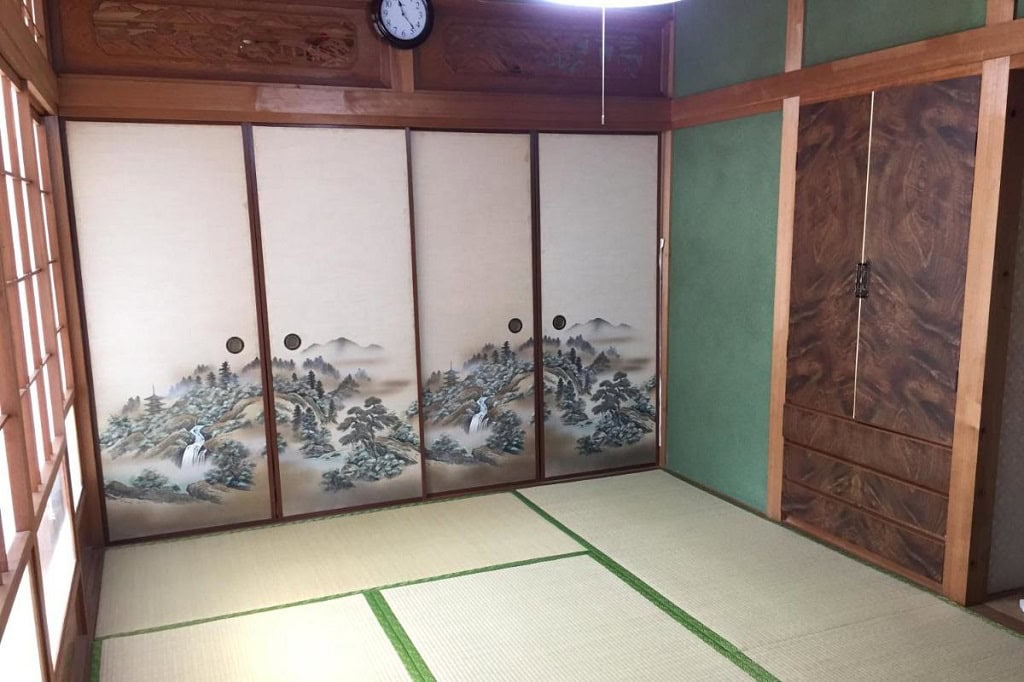
Ibusuki Chinese Minshuku in Ibusuki, Kagoshima Prefecture - traditional rooms feature tatami mats and futons for sleeping
Language tips for communicating with hosts
- Learn basic Japanese greetings and phrases
- Download a translation app that works offline
- Carry a pocket phrasebook or picture cards
- Practice using gestures and body language
- Be patient and respectful in communication attempts
- See my post How to Travel in Japan Without Speaking Japanese for more tips on this
Best seasons for sustainable travel in Japan
- Spring (March-May): Cherry blossoms, mild weather
- Autum (September-November): Fall colors, comfortable temperatures (possibly my favourite season)
- Avoid rainy season (June-July) and peak tourist times (Golden Week, Obon)
- See my post The Best Time To Visit Japan – All You Need To Know for more detail on choosing when to visit
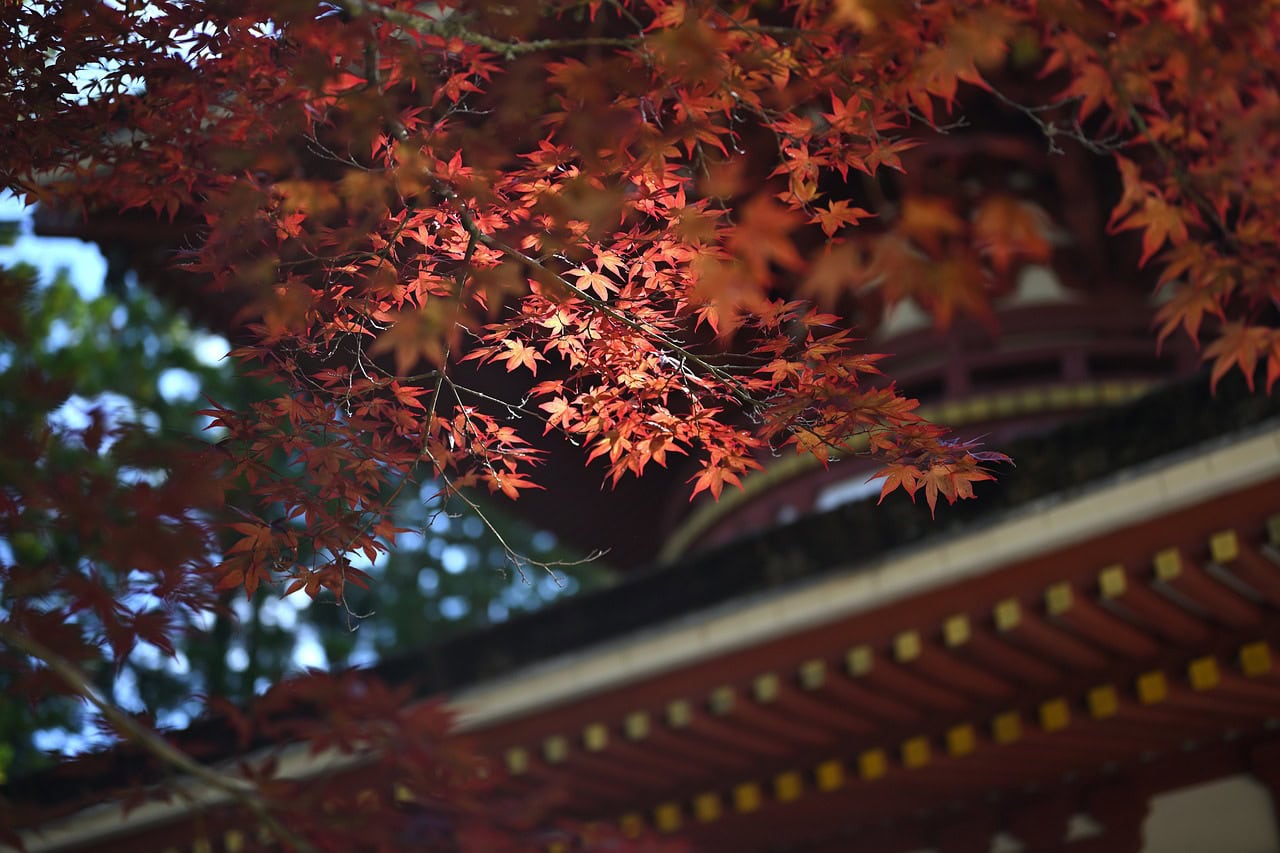
Autumn leaves changing colour, known as koyo in Japan, seen here in Koyasan, Wakayama Prefecture
Transportation options to remote locations
- Rent a car for flexibility (international driving permit required - see this post for more on driving in Japan)
- Use local buses or trains for an authentic experience
- Consider hiking or cycling for eco-friendly last-mile options
- Book transfers from/to local public transport stations through your accommodation if available
- Be prepared for limited public transportation in very remote areas
Sustainable accommodation - where to stay (north to south)
Sustainable accommodation in Hokkaido, Tochigi, Gunma
Sustainable accommodation in Nagano, Yamanashi, Gifu
Sustainable accommodation in Wakayama, Tokushima, Ehime
Sustainable accommodation in Hiroshima, Fukuoka, Ibusuki
Sustainable accommodation in Yakushima, Okinawa
Sustainable accommodation in Japan - where will you stay?
There you have it, folks – your introduction to Japan's inspiring sustainable accommodation.
Whether you're seeking a digital detox, an eco-friendly adventure, or simply a chance to experience Japan's natural beauty up close, these hidden gems offer some genuinely unforgettable experiences.
Why not start planning your off-the-beaten-path Japanese adventure today and create memories that'll last a lifetime?
From stargazing in Hokkaido to forest bathing in Yakushima, sustainable stays allow you to connect with nature and traditional Japanese culture in ways you never imagined.
Where will you stay? Let me know by leaving a comment below.
Need help planning your Japan trip?
Visit my Japan Travel Store

About the Author
A writer and publisher from England, Rob has been exploring Japan’s islands since 2000. He specialises in travelling off the beaten track, whether on remote atolls or in the hidden streets of major cities. He’s the founder of TheRealJapan.com.
Resources
Accommodation mentioned in this guide
Akizuki Kayabuki Kominka, Fukuoka, Fukuoka Prefecture
Bettei Senjuan, Minakami, Gunma Prefecture
Hotel WHY, Kamikasti, Tokushima Prefecture
Ibusiki Chinese Minshuku, Ibusuki, Kagoshima Prefecture
Kifu Club Shiretoko, Shiretoko, Hokkaido Prefecture
Kominka Mitsuhama Ryokan, Matsuyama, Ehime Prefecture
Kominkahu Kashikiri Cottage Tokei, Nagano, Nagano Prefecture
Minshuku Fukufuji, Nikko, Tochigi Prefecture
Minshuku Sumiya, Tanabe, Wakayama Prefecture
Minshuku Takizawa, Takayama, Gifu Prefecture
Nishiyama Onsen Keiunkan, Hayakawa, Yamanashi Prefecture
Sakaiya Kabukiya, Hiroshima, Hiroshima Prefecture
Sankara Hotel Spa, Yakushima, Kagoshima Prefecture
Treeful Treehouse Sustainable Resort, Nago, Okinawa Prefecture
Related Guides
3 Hidden Kyoto Walks To Get You Off The Beaten Path
5 Insider Tips for Sustainable Travel in Japan
A Winter Walk Through Exquisite Ainokura Village
Going Beyond Tokyo: Why It Pays To Be Bold
Japan’s Wildlife – Beyond Beauty and Into The Wild
Seike Yuba (Tofu Skin) Restaurant, Kyoto
Stardust Vegan Cafe & Boutique, A Kyoto Oasis
Top 6 Best Rated Kyoto Cycling Tours
Helpful Planning Resources
My List of Recommended Japan Travel Resources
Recommended Japan Travel Resources
My Japan Travel Guides and Services
If you enjoyed this article please share this image online:

